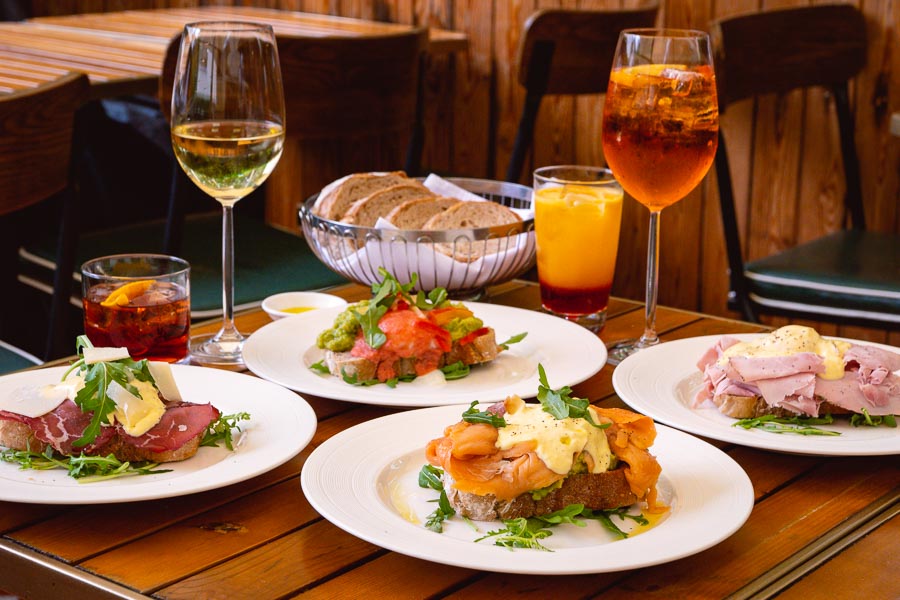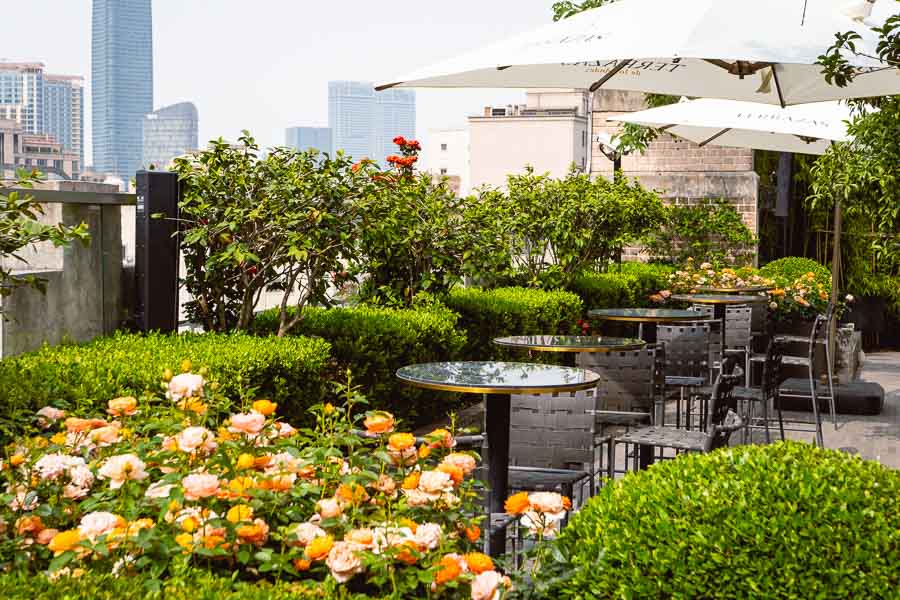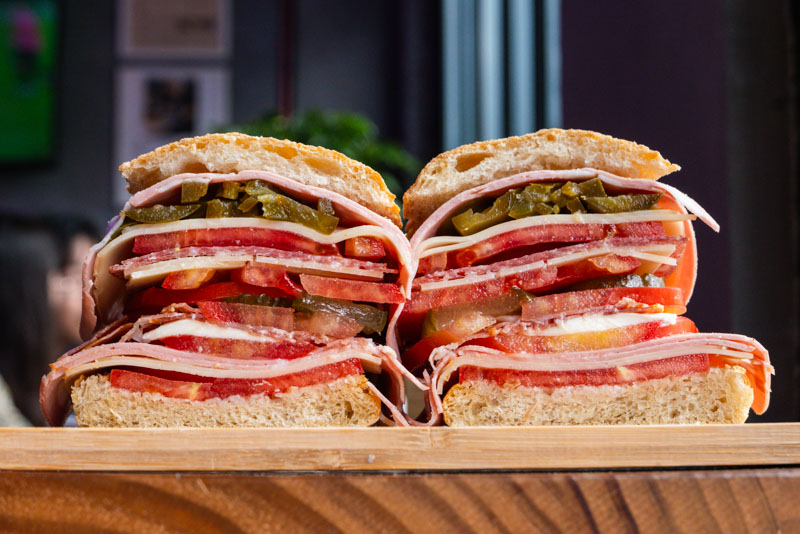Shengjian bao and guotie are popular (and delicious) Chinese snack foods. What are the differences between the two, and where can you get them in Shanghai?
What are Shengjian Bao (生煎包) & Guotie (锅贴)
Traditionally a breakfast item, shengjian bao and guotie are eaten throughout the day as a tasty albeit greasy snack. Though petit in serving, a couple liang (两, usually four pieces per liang) can add up to a very fulfilling meal.

Shengjian bao (生煎包) are like a cross between a guotie and a xiaolongbao, in general. They are made with a filling of minced pork and pork “jelly”, the latter of which is done by chilling pork broth and cutting them into cubes, the same method as per xiaolongbao.

These satchels are pan-fried raw to develop a brown-crusted bottom just like guotie, while the soup steams the rest of the dough, creating a soft, sometimes fluffy top. Some shengjian bao use leavened dough, which gives the final product an even fluffier top similar to that of a steamed bao. It generally doesn’t need any dipping sauce, but a little vinegar can help cut the richness.

Guotie (锅贴) or potstickers are a type of fried dumpling. Unlike shengjianbao, guotie are made with a thinner yet still sturdy wrapper that is always unleavened. It is filled with minced (fatty) pork and is sometimes seasoned with scallions, ginger, white pepper, soy sauce, etc.

These dumplings are also pan-fried until crispy, covered to steam and to cook the filling. Guotie are crunchy like a cracker on the bottom with chewy pleated tops. In Shanghai, it’s pretty common for people to eat a light beef soup spiked with curry powder alongside the guotie, to help cut the grease.
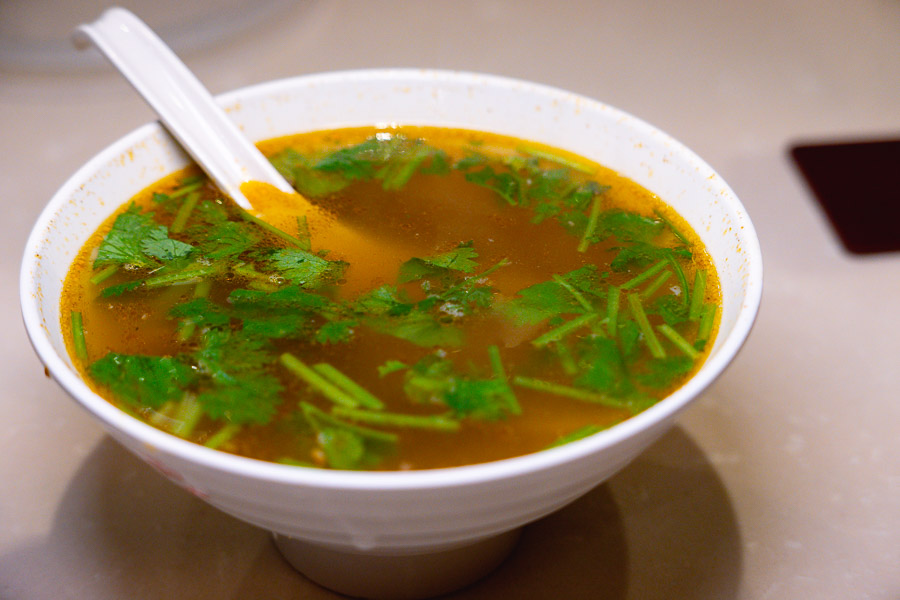
Shengjian bao and guotie may seem similar—and are often sitting in the same giant pan at the store—but they are, however, two distinctly different and beloved Chinese foods.

Both are often juice-filled, and like xiaolongbao, it’s really easy to burn yourself, so go slowly. Give them a minute or two to cool, and then nibble a small opening to release the steam and give it a slurp before diving headfirst.
You can find shengjian and guotie on just about any street corner, and everyone has their favorites, but these are my top picks.
Shu Cai Ji 舒蔡记
Click here for the OG Zhejiang Middle Road listing.
Click here for the Yunnan Middle Road listing.

For both shengjian and guotie, I recommend Shu Cai Ji. It’s not for the faint of heart, as these guys get quite the queue. But hey, it’s all part of that unique experience.
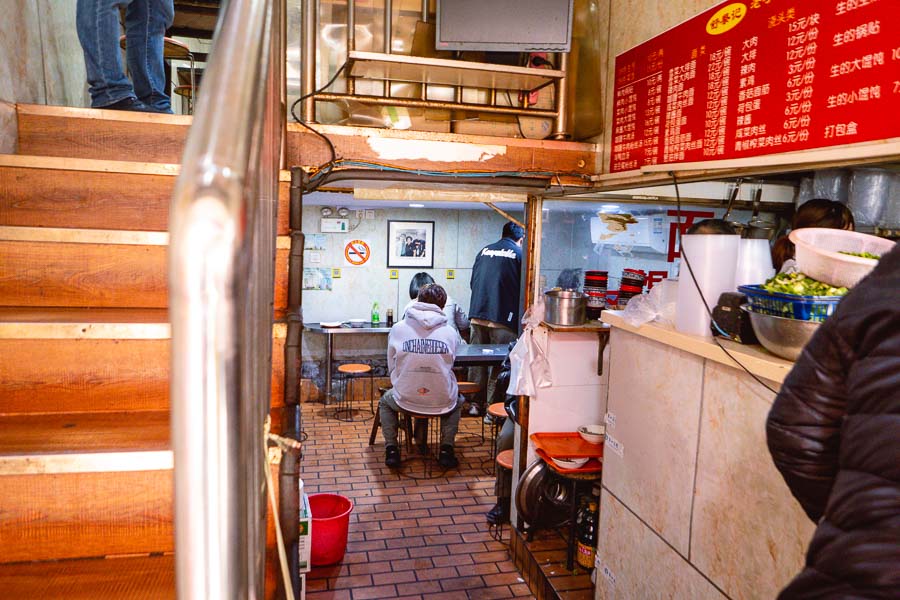
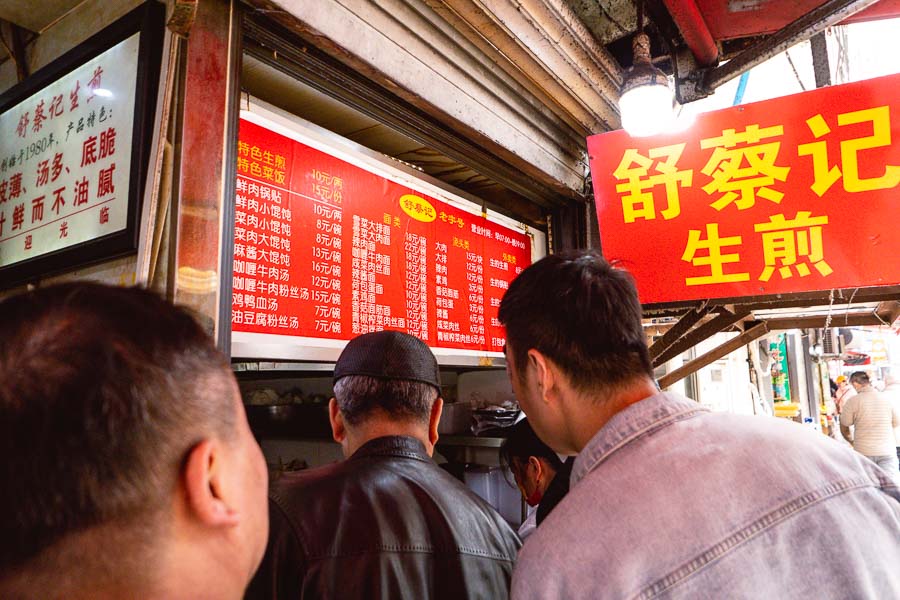
Shu Cai Ji is a hole-in-the-wall snack shop located in a very local corner of Huangpu district, just a couple streets away from The Bund. It’s run by husband and wife, Shu and Cai. Noontime is the busiest, and a queue forms out front like clockwork.

They do a handful of dishes, but the mainstays are guotie, shengjian, and “caifan”, rice fried with bok choy, salted pork, mushrooms, onion, and pork lard. Their shengjian use a slightly leavened dough, so it’s lightly puffed on the top.
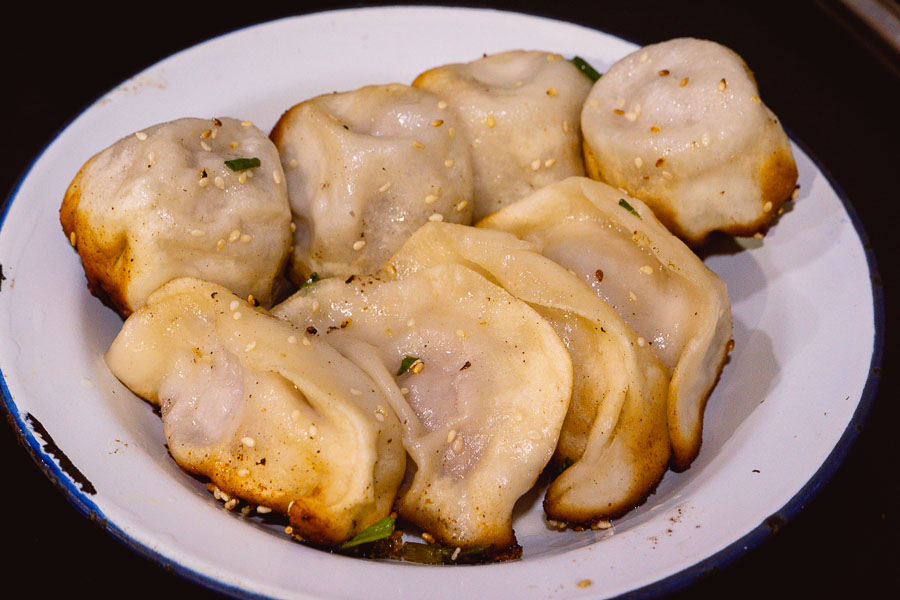
You order inside, get a ticket, and join the collection queue.

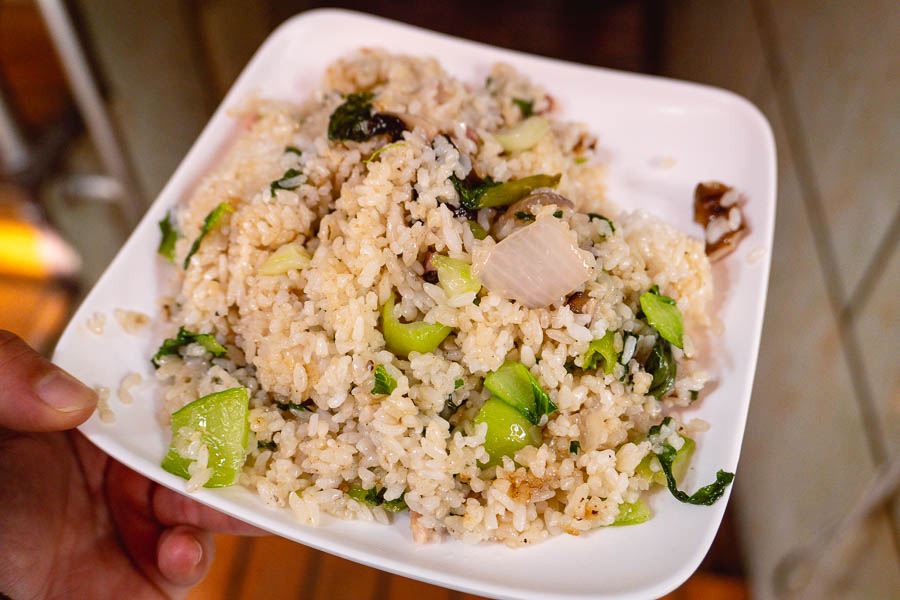
They’ve been serving since 1980, proclaiming that their shengjian are “thin skinned, plenty soupy, and crispy on the bottom.” One liang of shengjian is ¥10, one liang of guotie is ¥10, and one massive plate of caifan is ¥15.
Auntie Huang Guotie Da Wang 黄阿姨锅贴大王

Auntie Huang started her guotie shop in 1997 just north of Jing’an Temple and has been keeping it no-frills ever since. She has spent the last 26 years in Jing’an, recently relocating her shop a couple doors down to a proper store.

At least now it has a door and air-conditioning; for many years it was just a roll-down shutter or open to the elements.

They are only cavalier about appearance though, because Auntie Huang is deadly serious about her guotie, which are super crispy and porky and sticky, exactly what you want in a good, cheap guotie — and at ¥7 for four, they are definitely cheap.


What makes her guotie special is that she makes her own dough wrappers. You can also get the raw, uncooked guotie to go, and fry them up at home. She also has shengjian bao and a couple other dishes.
He Le Dim Sum Shop 和乐点心店 (Closed)
Address: 52 Xiangyang Bei Lu 襄阳北路52号
Tel: 54047587
Hours: Daily, 6am-8pm

He Le is a guotie place right at the nexus of the Xiangyang Lu and Changle Lu snack food intersection, which despite the surrounding gentrification, has managed to stay in place for 16 years.

For my money, it’s the best snack on that corner. Order outside the tiny storefront, where they’re frying up the stuff, then grab your plate and sit inside.

It’s pretty busy in the morning, and is usually packed from 8am to 9:30am. Otherwise, it’s pretty easy-going. Pork is ¥9/four (鲜肉锅贴), curry beef soup is ¥12 (咖喱牛肉汤), add vermicelli to your soup for ¥15 (粉丝). They also have raw ones for home ¥8/four (生锅贴).
Da Hu Chun 大壶春
Click to view listings for locations on Sichuan Middle Road, Zhejiang Middle Road, and Yunnan South Road.

Da Hu Chun dates back to the 1930s, when shengjian bao were first taken out of the teahouse and becoming their own snack, with their own shops. The brand has been around for nearly 100 years, established in 1932! It has survived all that time because of the Shanghainese love for its particular style of shengjian bao: fluffy!

I’m more inclined towards Da Hu Chun’s variation of shengjian.
Da Hu Chun leavens their dough, which makes the wrapper puff up like a small fluffy bun or mantou. It also means the wrapper absorbs much of the broth inside, which is why people call this the “soupless” shengjian bao, and why it’s customary to order beef curry soup on the side, like at pot sticker places.

Da Hu Chun does some modern fillings, including foie gras (¥10/one). The foie gras one was delicious, but I couldn’t have more than two. Get the classics of pork (¥11/four), prawns (¥15/four), crab roe (¥15/four).
The popular one is near the Bund on Sichuan Zhong Lu, which has 14,000 reviews on Dianping and a Bib Gourmand in the Shanghai Michelin Guide. There are also dozens of locations all around town.
Dong Tai Xiang 东泰祥生煎馆
Click here to view the listing.

Dong Tai Xiang is a modern brand that claims to make snacks the “old way” — and they are delicious. Their shengjian bao splits the difference between Xiao Yang’s and Da Hu Chun; the wrapper is semi-leavened, making it thicker than a Xiao Yang’s dumpling but with more soup than a Da Hu Chun shengjian bao. Shengjian are ¥12 for four.

Dong Tai Xiang also has other beloved dishes, including dumplings (in soup and cold with sesame sauce), scallion noodles, sesame noodles, and tangyuan.

Their flagship store on Chongqing Bei Lu is open 24 hours.
Yang’s Dumplings 小杨生煎
Address: 178 Wujiang Lu 吴江路178号
Tel: 62308002
Hours: Daily, 6:30am-11pm

Yang’s Dumplings is by far the most well known for shengjian bao in Shanghai, with dozens and dozens of stores across the city and beyond. Yang’s Dumplings was a street vendor on Wujiang Lu a couple decades ago, back when Wujiang Lu was still a food street. Their thing is that they use unleavened dough for the wrapper (called “dead dough” in Chinese), like a guotie.

In addition to the traditional pork filling (¥13/4), Yang’s specialties also include crab with crab roe (¥29/4), and prawns (¥21/four). They also beef and cheese (¥19/four) and coconut chicken curry (¥15/four), of which the latter isn’t bad, but just not a traditional shengjian in my opinion. They also have other dishes like soups, noodles, and other dumplings.

Despite being one of the oldest and most well known names around, it isn’t popular with the home crowd any more for many reasons; not traditional, too soupy, too wanghong, etc. But there are plenty of them all around town, so if you have a hankering, they’re alright!
Xiao Yan’s 晓燕生煎
Address: 1226 Dingxi Lu 定西路1226号
Tel: 13651966833
Hours: Daily, 7am-7:30pm
I’ve also been told that Xiao Yan’s does some excellent guotie and shengjian. It’s rather popular, too!
There you have it. Tasty and cheap snacks!

